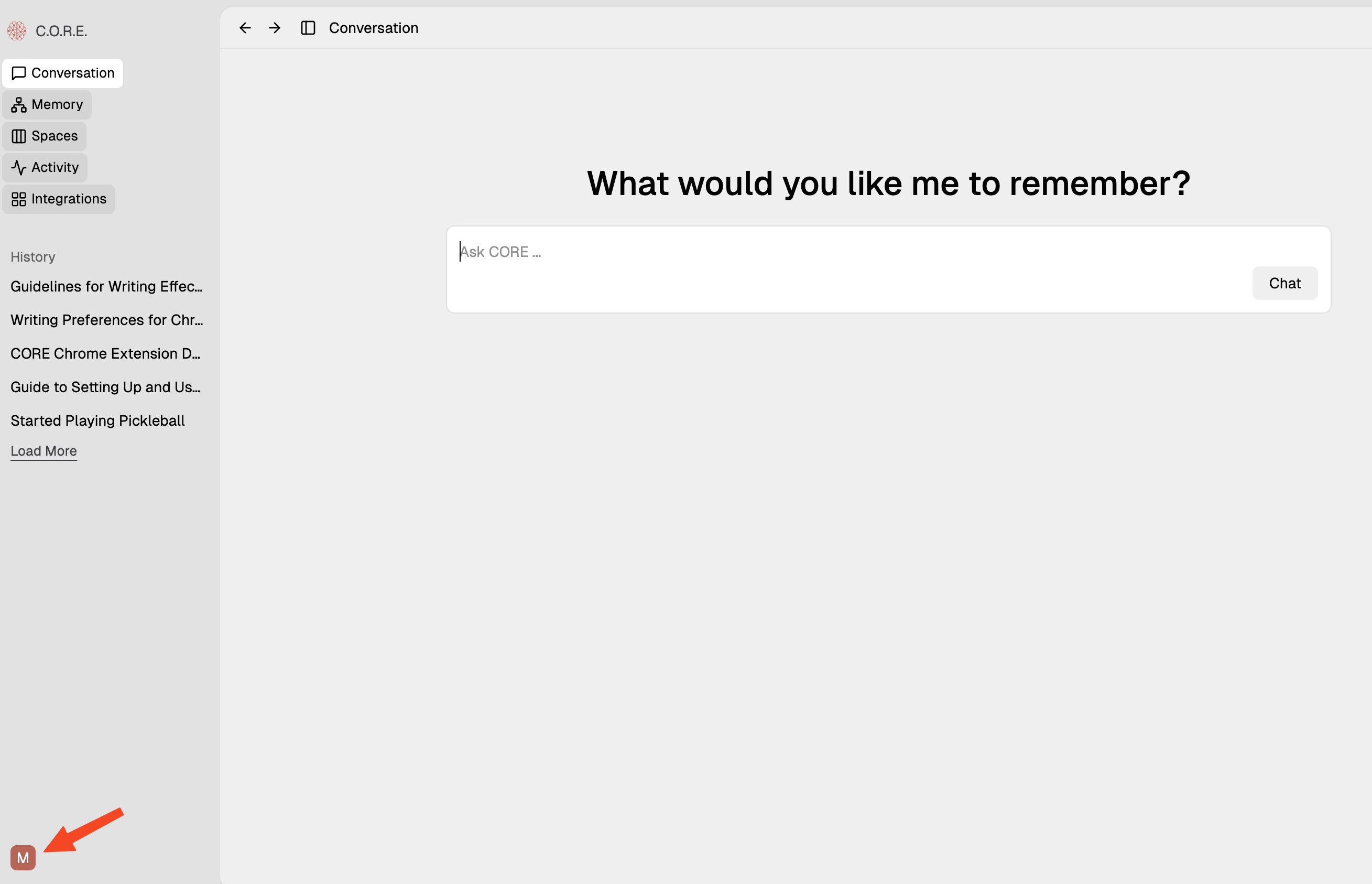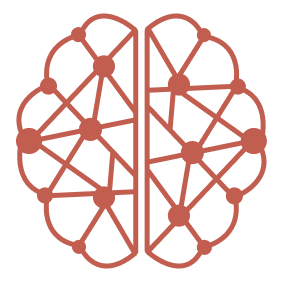Skip to main content
Sync your Obsidian notes with CORE (Contextual Observation & Recall Engine) and get memory-aware answers directly inside Obsidian.
✨ What it does
- Sync Notes: Push selected notes (or entire vault sections) into CORE as Episodes.
- Right-Side Panel: Opens a dedicated panel in Obsidian that sends the current note’s content to CORE and shows relevant results, links, or summaries.
- Frontmatter Control: Decide which notes to sync by adding simple YAML flags.
- Offline Safe: Failed syncs are queued locally and retried automatically.
🚀 Installation
Local development
-
Download the latest release assets from core-obsidian v0.1.1 and extract them into your Obsidian vault under
.obsidian/plugins/obsidian-core-sync/:
-
Ensure the directory contains
main.js, style.css, and manifest.json.
If .obsidian folder is hidden Use CMD + SHIFT + . to show hidden files and then add above files in .obsidian/plugins/obsidian-core-sync/
-
Enable the plugin in Obsidian:
- Go to Settings → Community plugins
- Find “CORE Sync” and toggle it on
Community Installation
Note: A pull request for community installation is pending approval. You can track its progress here.
⚙️ Configuration
Step 1: Get Your API Key
- Login to CORE dashboard at core.heysol.ai
- Navigate to Settings (bottom left)

- Go to API Key → Generate new key → Name it “obsidian”
- Copy the generated API key
Step 2: Configure Plugin Settings
- In Obsidian, go to Settings → CORE Sync
- Configure the following:
- CORE Endpoint: Your CORE ingest/search API (default:
https://core.heysol.ai)
- API Key: Paste the API key from Step 1
🛠️ Usage
Mark Notes for Sync
Add the following frontmatter at the top of a note to mark it for synchronization:
** Manual Sync Commands**
Open the command palette (Cmd/Ctrl + P) and run:
- “Sync current note to CORE” - Sync the currently open note
- “Sync all notes with core.sync=true” - Sync all notes marked for synchronization
CORE Panel with Deep Search
- Open the CORE Panel by running “Open CORE Panel” from the command palette
- This opens a new tab on the right side of Obsidian
- When you open or edit a note, the plugin will automatically:
- Send the note’s content to CORE
- Display relevant memories, links, and summaries
- Show related notes from your vault
The Deep Search feature proactively surfaces relevant context from your notes while you work:
Example Use Cases:
- Meeting Prep: Open your daily note before a 1:1 meeting, and the sidebar automatically shows relevant notes from past meetings with that person
- Project Context: Switch to a project document, and see related discussions, decisions, and action items from previous sessions
- Travel Planning: Update your packing list, and CORE shows you what you forgot on past trips or useful tips from previous travel notes
- Research Continuity: Work on a research note, and get automatic cross-references to related concepts and sources from your vault
Deep Search transforms your notes from passive storage into active assistance, providing in-the-moment retrieval without manual searching.
🛠️ Troubleshooting
API Key not working?
- Verify the key is correctly copied from CORE dashboard
Notes not syncing?
- Ensure
core.sync: true is in the frontmatter
🤝 Support
- GitHub Issues: Report bugs and feature requests
- Discord Community: Join our Discord and ask questions in #core-support

